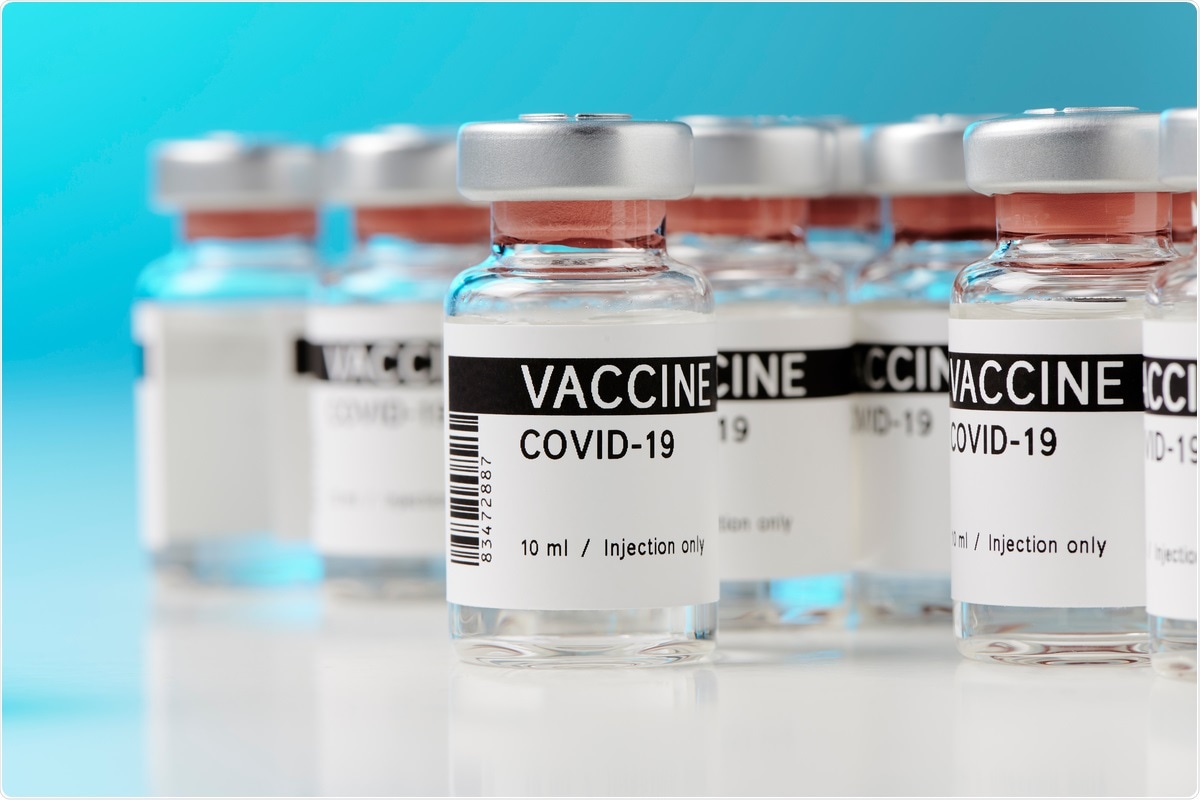The coronavirus disease 2019 (COVID-19) pandemic, caused by the severe acute respiratory syndrome coronavirus 2 (SARS-CoV-2), continues to spread rapidly across the globe. New research attempts are being made, therefore, to develop vaccines and antiviral drugs that will help to prevent or treat the condition and reduce the mortality rate.
A new study, which was released on the medRxiv* preprint server, details results from a single dose of the FINLAY FR 1A recombinant dimeric receptor-binding domain (RBD) base vaccine during a phase I clinical trial with 30 COVID-19 convalescents to test its capacity for boosting natural immunity.

The need for new vaccines
While several vaccines have gained emergency use authorization (EUA), with many others in the early clinical trial phase, their efficacy and ability to induce immunity to the newer variants of the virus. This new preprint reports on the safety and efficient booster performance of a new vaccine candidate (FINLAY-FR-1A) during phase I trials.
The virus binds to the host cell via its RBD within the S1 subunit of its immunodominant spike antigen. The spike exists naturally in the trimeric form.
The three RBDs can exist in either ‘up’ or ‘down’ conformations, based on which they can attach to the host cell receptor, the angiotensin-converting enzyme 2 (ACE2). The RBD-ACE2 binding results in spike protein cleavage and viral internalization, triggering productive infection.
The FINLAY-FR-1A vaccine is based on a recombinant dimeric form of the receptor-binding domain (d-RBD), which is in clinical trials in Cuba. Phase I trials have shown a desirable safety profile.
Study subjects
The current study explores the safety and humoral response after a single dose of this vaccine candidate, called FINLAY-FR-1A. The study includes 30 people in the convalescent stage after SARS-CoV-2 infection. All had a positive polymerase chain reaction (PCR) test for the virus that had become negative two or more months from the start of the study.
They consisted of three groups. The first group had mild COVID-19, the second group had asymptomatic disease, and the third were seropositive but never had a positive PCR.
Safety profile
Vaccine-associated adverse events were assessed for frequency and severity. Prior studies have shown that three-fourths of those who were seropositive and got one dose of an mRNA vaccine developed adverse events, which is much more frequent than observed in seronegative vaccine recipients.
With the current vaccine, adverse events were found in six individuals, which comes to a fifth of the group. The total adverse events numbered seven and were mostly local events. This supports safety findings from an earlier study on non-infected subjects.
Anti-RBD antibodies
Of the 30 participants, anti-RBD immunoglobulin G (IgG) antibodies were markedly increased on day 7 post-vaccination, as reported earlier in healthcare workers. The peak was reached on day 28, at 722 AU/mL, which is 21-fold the level before vaccination, and ten times higher than the average pre-vaccination Cuban Convalescent Serum Panel (CCSP).
This reflects the results obtained with a single dose of the Pfizer/BioNTech mRNA vaccine BNT162b2. Anti-RBD IgG was found to be increased in all the three groups, with four non-responders among them, corresponding to 13% of the whole group.
Antibody functionality
Before vaccination, the RBD-ACE2 binding was inhibited by less than 60%; after one dose, the inhibition ratio increased in 26/30 subjects, over time, to 94% by day 14.
The majority achieved this level of antibody-mediated inhibition even earlier, by day 7. This is in contrast to the 47% inhibition achieved with the CCSP.
The researchers also observed a 50% molecular virus neutralization titer (mVNT50) – that is, the titer at which serum dilutes 50% of RBD-ACE2 interactions. The mVNT50 geometrical mean titer (GMT), of ~2240, on post-vaccination day 28, was almost 120-fold higher than the pre-vaccination titer of ~22, and 27-fold higher than the CCSP value of ~83.
The GMT for the conventional virus neutralization titer (cVNT50) assay, against the live virus, was four-fold higher than the median GMT for CCSP.
What are the implications?
These results indicate that a single dose of this vaccine candidate is both safe and immunogenic in convalescent COVID-19 patients. The safety profile is excellent, while the antibody response is boosted 20-fold at one week post-vaccination.
Viral neutralization is also four-fold higher than the pre-vaccination mean convalescent serum neutralizing antibody titer.
The FINLAY-FR-1A can thus move into phase II clinical trials to test its efficacy and to work out a general protocol for strengthening immunity in this group of convalescent COVID-19 patients.
*Important Notice
medRxiv publishes preliminary scientific reports that are not peer-reviewed and, therefore, should not be regarded as conclusive, guide clinical practice/health-related behavior, or treated as established information.
- Chang-Monteagudo, A. et al. (2021). A single dose of SARS CoV 2 FINLAY FR 1A dimeric RBD recombinant vaccine enhances neutralization response in COVID19 convalescents, with excellent safety profile. A preliminary report of an open-label phase 1 clinical trial. medRxiv preprint. doi: https://doi.org/10.1101/2021.02.22.21252091, https://www.medrxiv.org/content/10.1101/2021.02.22.21252091v1
Posted in: Drug Trial News | Medical Science News | Medical Research News | Disease/Infection News | Healthcare News
Tags: ACE2, Angiotensin, Angiotensin-Converting Enzyme 2, Antibodies, Antibody, Antigen, Assay, Cell, Clinical Trial, Coronavirus, Coronavirus Disease COVID-19, Drugs, Efficacy, Enzyme, Frequency, Healthcare, Immunoglobulin, Mortality, Pandemic, Polymerase, Polymerase Chain Reaction, Protein, Receptor, Research, Respiratory, SARS, SARS-CoV-2, Severe Acute Respiratory, Severe Acute Respiratory Syndrome, Spike Protein, Syndrome, Vaccine, Virus

Written by
Dr. Liji Thomas
Dr. Liji Thomas is an OB-GYN, who graduated from the Government Medical College, University of Calicut, Kerala, in 2001. Liji practiced as a full-time consultant in obstetrics/gynecology in a private hospital for a few years following her graduation. She has counseled hundreds of patients facing issues from pregnancy-related problems and infertility, and has been in charge of over 2,000 deliveries, striving always to achieve a normal delivery rather than operative.
Source: Read Full Article
